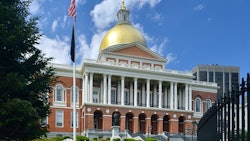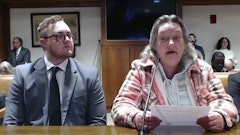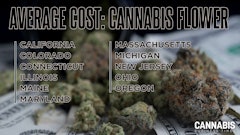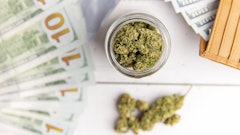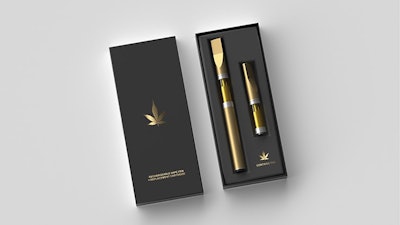
Massachusetts Gov. Charlie Baker declared a public health emergency and announced a four-month ban on vape sales statewide. This includes cannabis vape cartridges sold in licensed dispensaries.
Naomi Martin of The Boston Globe tweeted live from the press conference today:
Breaking: Gov Baker bans all sales of vapes - both marijuana and nicotine. Online and stores effective immediately. He says state has 61 possible cases of vaping-related lung illness pic.twitter.com/vZdtAlpB7M
— Naomi Martin (@NaomiMartin) September 24, 2019
Baker reported that Massachusetts has seen 61 cases of the vaping-related pulmonary disease that’s appeared all over the U.S. in recent weeks. President Trump has urged the U.S. Food and Drug Administration (FDA) to pull flavored e-cigarettes from the market, but the cannabis industry has not been immune to skepticism and scrutiny of its own vape products.
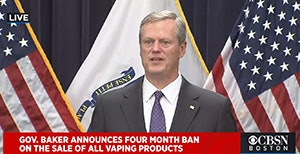 massachusetts governor baker vape sales
massachusetts governor baker vape sales"This thing has our full attention," Baker told reporters earlier in the day. He noted specifically that his office has worked with the Massachusetts Cannabis Control Commission (CCC)—and that the commission will enforce this ban.
Massachusetts is the first state in the U.S. to issue a total ban on vape sales.
"It's pretty clear at this point that there's something going on with vaping, and everyone should keep that in mind," Baker said at the press conference today.
Shaleen Title, a commissioner with the CCC, tweeted: "This is a terrible decision. Purposely pushing people into the illicit market — precisely where the dangerous products are — goes against every principle of public health and harm reduction. It is dangerous, short-sighted, and undermines the benefits of legal regulation."
And Kris Krane, president of 4Front Ventures, which operates its retail arm as Mission Dispensaries in Massachusetts, concurred: “The governor’s decision to ban the sale of vape products in Massachusetts is an unfortunate reaction to a genuine public health concern. Evidence suggests the overwhelming majority of vape-related illnesses have resulted from the use of unlicensed and unregulated vape cartridges obtained from the illicit market. Though he may have the best intentions, banning the sale of legal vape products produced in a heavily regulated industry will only serve to drive consumers and medical patients to the illicit market, possibly exacerbating these public health concerns rather than alleviating them. We stand behind our products and are confident the legal and highly regulated market is capable of protecting consumers.”










